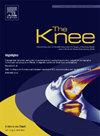内侧单室膝关节置换术一年后患者满意度:一项混合方法研究
IF 2
4区 医学
Q3 ORTHOPEDICS
引用次数: 0
摘要
目的我们旨在(1)确定内侧单室膝关节置换术(mUKA)患者术后1年的不满意频率,(2)确定术前因素与不满意之间的关系,(3)通过对术后3年以上的不满意和满意患者进行访谈和补充问题,深入了解不满意的原因。方法在研究的第一部分,对来自前瞻性队列研究(SPARK)的336例UKA患者的数据进行分析。使用有序逻辑回归,研究基线因素与患者满意度之间的关系。第二部分,在术后3.4年进行定性研究,匹配满意和不满意的患者参与访谈并填写问卷。结果298例患者术后1年缓解。年龄较小的患者(p: 0.04)、Ahlbäck评分较低的患者(p: 0.0003)以及由一名特定外科医生(外科医生编号:0。8) (p: 0.01)。9名不满意的患者参加了访谈,9名满意的患者也参加了访谈。通过访谈,我们发现患者的不满意与(1)对膝关节置换术的期望,(2)信息和沟通,(3)随访和康复,(4)疼痛和不适有关。不满意的患者回忆较少参与术前决策(p: 0.02),他们感觉没有充分地看到或听到(p: 0.01)。结论术后1年患者满意度较高。在受访的不满意患者中,9人中有6人表示不满意的原因不是膝关节症状。本研究指出,与外科医生、年龄和骨关节炎严重程度相关的因素可能会影响短期mUKA结果。证据等级:II,前瞻性队列研究。本文章由计算机程序翻译,如有差异,请以英文原文为准。
Patient satisfaction following medial unicompartmental knee arthroplasty at one year: a mixed methods study
Purpose
We aimed to (1) determine the frequency of dissatisfaction 1-year postoperatively in medial unicompartmental knee arthroplasty (mUKA) patients, (2) determine associations between preoperative factors and dissatisfaction, (3) gain insight into causes for dissatisfaction by performing interviews and supplementary questions of dissatisfied and satisfied patients more than 3 years postoperatively.
Method
In the first part of the study, data concerning 336 UKA patients from a prospective cohort study (SPARK) was analyzed. Using ordinal logistic regression, associations between baseline factors and patient satisfaction was investigated. In the second part, a qualitative study was conducted 3.4-years postoperatively: Matched satisfied and dissatisfied patients participated in interviews and completed questionnaires.
Results
298 patients responded 1 year post surgery. Dissatisfaction was more frequent in younger patients (p: 0.04), patients with lower Ahlbäck score (p: 0.0003) and when operated on by one specific surgeon (surgeon no. 8) (p: 0.01). 9 dissatisfied patients participated in interviews, as did 9 matched satisfied patients. Based on interviews, we found that patient dissatisfaction was related to (1) expectations to the knee arthroplasty, (2) information and communication, (3) follow-up and rehabilitation, (4) pain and discomfort. Dissatisfied patients recalled less participation in preoperative decision-making (p: 0.02) and that they did not feel adequately seen or heard (p: 0.01).
Conclusion
High rates of patient satisfaction were noted 1-year postoperatively. Among interviewed dissatisfied patients, 6 of 9 expressed other reasons than knee symptoms as the reason for dissatisfaction. This study points to factors related to the surgeon, age and severity of osteoarthritis as factors that may influence short-term mUKA results.
Level of evidence: II, prospective cohort study.
求助全文
通过发布文献求助,成功后即可免费获取论文全文。
去求助
来源期刊

Knee
医学-外科
CiteScore
3.80
自引率
5.30%
发文量
171
审稿时长
6 months
期刊介绍:
The Knee is an international journal publishing studies on the clinical treatment and fundamental biomechanical characteristics of this joint. The aim of the journal is to provide a vehicle relevant to surgeons, biomedical engineers, imaging specialists, materials scientists, rehabilitation personnel and all those with an interest in the knee.
The topics covered include, but are not limited to:
• Anatomy, physiology, morphology and biochemistry;
• Biomechanical studies;
• Advances in the development of prosthetic, orthotic and augmentation devices;
• Imaging and diagnostic techniques;
• Pathology;
• Trauma;
• Surgery;
• Rehabilitation.
 求助内容:
求助内容: 应助结果提醒方式:
应助结果提醒方式:


